Dads
My seven-year-old son is doing his first reconciliation today. On Wednesday, I reminded him there were two days until he received the sacrament, so he grabbed a pencil and paper and wrote “My sins” on top of the page. He then proceeded to examine his conscience with the help of his older brother, who is receiving first communion and confirmation in May. It was a proud dad moment.
Growing up, my dad wasn’t into his faith. He returned to the Church when I was an adult, and now he’s a lector at his home parish. The biggest compliment my dad has given me is saying that he tells people he wishes he had a dad like me. I think he’s a great dad, and I love him. Still, hearing those words from him makes me think I’m doing well. Mrs. Cantú and I are doing well; I can’t take all the credit.
I had heard about the 1994 study on the demographic characteristics of linguistic and religious groups in Switzerland, which includes the figure below, on the practice of religion based on the practice of the parents. If both mom and dad are regular churchgoers, children have a 32.8% chance of becoming regular churchgoers. However, if dad is a regular and mom is nonpracticing, there is a 44.2% chance that children will become regular churchgoers. Conversely, when dad is nonpracticing, even if mom is a regular churchgoer, the odds of the children becoming regular churchgoers drop to 1.5%.
My dear brothers, your leadership is needed. Take your role as the spiritual leader of your Domestic Church seriously. Become a man of prayer, a man after the heart of Jesus. Lead your wife and children to Christ.
If you don’t know how to lead, pray for wisdom. If you think you’re not fit to lead, believe that God chose you to be the head of your family. He trusts you to be part of the plan of salvation for your wife and children. Pray to be equipped with what you need to become the man God wants you to become. Surround yourself with other men who are on the same path. If you don’t have any friends who practice the faith, ask God to send you brothers.
The body of Christ needs strong and holy marriages. It needs men willing to go into the breach and fight the good fight. Engage in the battle.
Charisms
The Catechism of the Catholic Church, in paragraph 799, says that charisms are graces of the Holy Spirit which directly or indirectly benefit the Church, ordered as they are to her building up, to the good of men, and to the needs of the world.
A nonexhaustive list of charisms could include:
Hospitality
Teaching
Leadership
Administration
Intercessory Prayer
Wisdom
Discernment of Spirits
We all have talents and gifts, something we can bring to the table. Mrs. Cantú and I have a rule when talking to our pastor: do not bring up a problem if you’re unwilling to work on the solution. Mrs. Cantú noticed there weren’t many opportunities for women in the parish to attend Bible studies, so she volunteered to lead a few of them.
I talked to my pastor about increasing reverence for the Mass, and I’m currently looking at courses and materials to develop a solution that may or may not be implemented. I wanted more fellowship opportunities for the men of the parish, so I started organizing drinks and cigars nights.
The parish staff is made up of humans, and I don’t know about you, but I’m painfully aware of our limitations. But, you may have a particular set of skills that cover the gaps in your parish. We can all do something to build the kingdom of God.
Ask yourself, what am I good at? What’s my strong suit? Maybe you can sing, join the choir. Perhaps you’re good at welcoming people, so become an usher. You love the faith and want to teach it, catechist. You’re good with power tools, help the maintenance guys. You have a green thumb, landscaping. I’m 90% sure that if you go to your pastor and offer help, he will take you up on it.
Seven Churches Visitation
Holy Week is upon us, and since the next Smorgasbord won’t come out until Good Friday, I want to talk to you about one of my favorite Holy Week traditions, the Seven Churches Visitation.
It is believed that the tradition of the Seven Churches Visitation began in Rome with St. Philip Neri in the 1500s. St. Phillip Neri would take groups of faithful to visit each of the seven basilicas of Rome on Holy Thursday night as a way of keeping watch with Christ. This tradition is a kind of pilgrimage. The idea is to visit seven altars of repose after the Mass of the Lord’s Supper and meditate on the events between Getshemani and the crucifixion.
A little bit of planning is necessary, and if you live in a rural area where there are not a lot of Catholic churches around, this may be a bit more challenging. However, if you live in a metropolitan area, like I do, you can map a route to the parishes around you. On average, I would need to drive 6 miles between churches, which is not bad. Some friends and I carpooled around North Phoenix a few years ago, and I took my oldest son with me last year. I plan to take my two older boys this year.

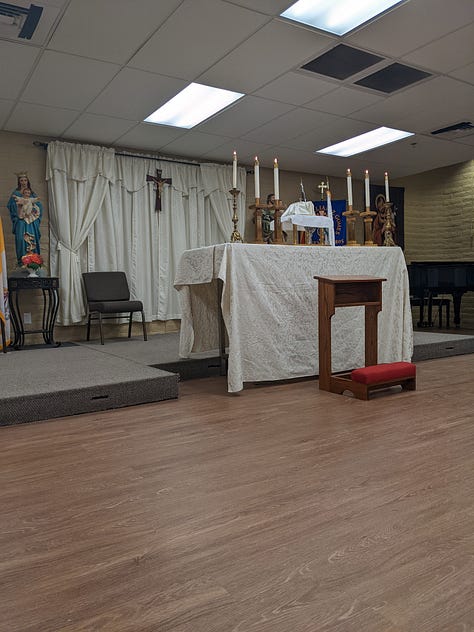
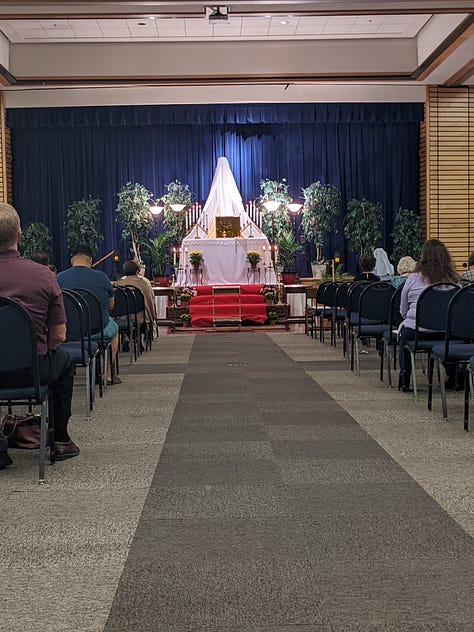
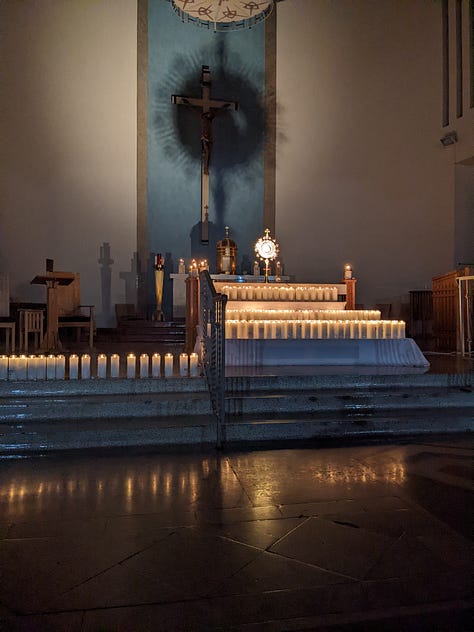
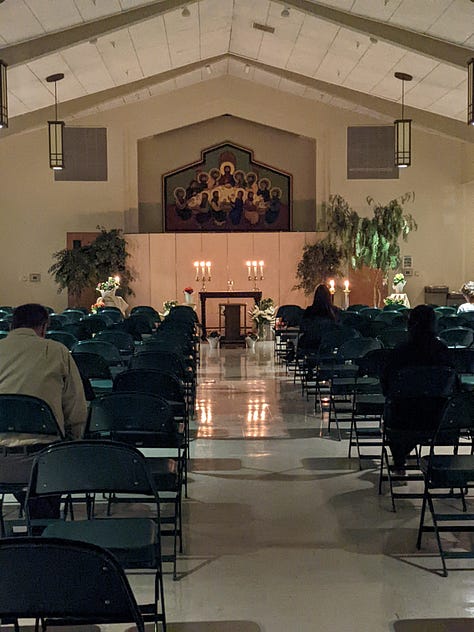
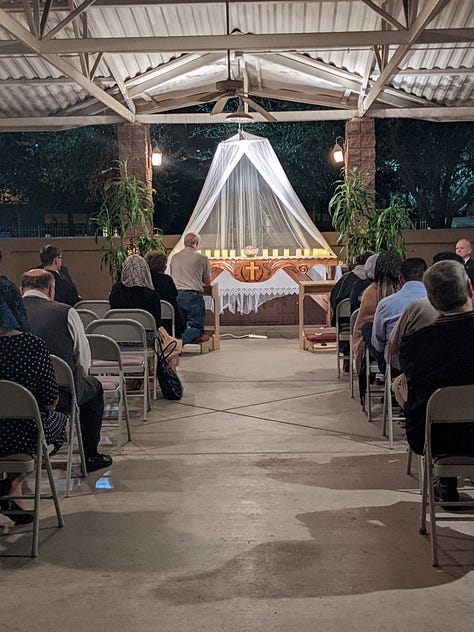
From what I have read, this tradition is still alive in Latin America, the Philippines, Italy, and Poland. I think it is a wonderful tradition that’s worth bringing back. So, if I have piqued your interest, here are seven pieces of scripture that you can meditate on in each altar of repose.
Jesus in the Garden of Gethsemane (Luke 22:39-46)
Jesus before Annas (John 18:19-22)
Jesus before Caiaphas (Matthew 26:63-65)
Jesus before Pilate (John 18:35-37)
Jesus before Herod (Luke 23:8-11)
Jesus before Pilate again (Matthew 27:22-26)
Jesus’s crucifixion and death (Matthew 27:27-31)
And if you want these verses in one document, you can download the PDF below.
Peregrino is a reader-supported publication. To receive new posts and support my work, consider becoming a free or paid subscriber.
Sobremesa
Have you ever brought a list of your sins to the confessional?
What do you think is your charism?
What’s your favorite Holy Week tradition?





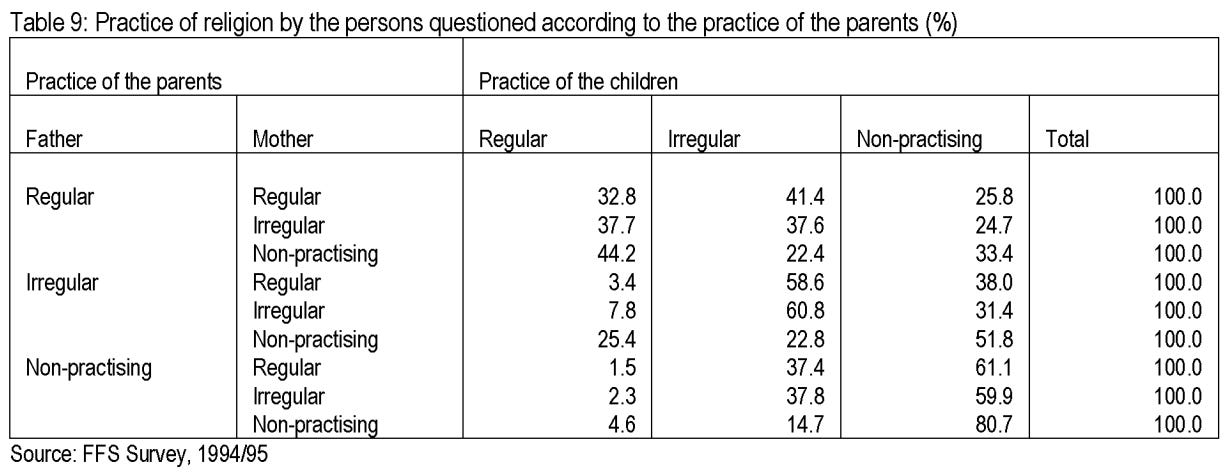
1. Always. I have a mind like a sieve and the holes are getting bigger every day.
2. I’m a good preacher (so I’ve been told).
3. I love the huge variety of popular devotions that have developed throughout the Catholic world.
I used to make the Seven Churches Pilgrimage on Holy Thursday but it’s almost impossible now. My mom did it for years and they walked. Before 1955 all the Holy Week liturgies were in the morning so they had all day to walk from church to church. Even after that it was still possible because the watch before the repository lasted all night up until the Good Friday Liturgy until the reforms of Paul VI. The Pilgrimage was still possible in urban areas with lots of ethnic parishes even up to the Millennium, but now with churches closing and being consolidated and adoration ending at midnight or before it takes careful planning if it’s even possible. Some have reduced the number to five or three to keep the tradition alive.
1) I always write a list. I try to do the type/number thing where I say it all as briefly but modestly as possible. It's very penitential, at times--there's no wiggle room when you say to the priest, who is "in persona Christi" that "I have sinned in this way, this many times". And funny enough, whenever that list is weighing me down and I feel burdened by my many sins, the priest always absolves me with seeming carelessness. Don't you want to admonish me a little bit? Shouldn't you tell me how bad a person I am? Never happens--and their casual dismissal of my sins always reminds me that God is greater than my sins.
2) I wouldn't have said this when I first became a Catholic, but I like to think I've got a charism for evangelism. I don't know what the fullness of that looks like, but my approach is always one of friendship. Substack is ripe ground for curious seekers, and they are very quiet about it. Being the kind of person to whom a quiet seeker might feel comfortable asking questions is a role I enjoy.
This all sounds very self congratulatory, so i'll only add that any time I have tried to evangelize "on purpose" I have done badly--and any time God sends me an opportunity and I pray "alright send me the right words please" it usually goes better.
3) Easter is my absolute favorite holy day, and in a perfect world I would do it up to the nines. I don't get an opportunity to do that very often these days, but I cherish the memories of the few times I have. The first time I ever went to a good friday service, I was absolutely floored. I didn't realize they had pre-consecrated the Eucharist on Holy Thursday and so was unprepared to both kiss Jesus on the cross AND receive Him in the Eucharist--the experience was totally overwhelming and I couldn't hold back the tears. I have not yet gotten the full Triduum experience, but I do try as often as I can to attend the Easter Vigil in solidarity with our brothers and sisters in Christ coming into the Church, and it helps me reflect fondly on my own passage across the tiber.